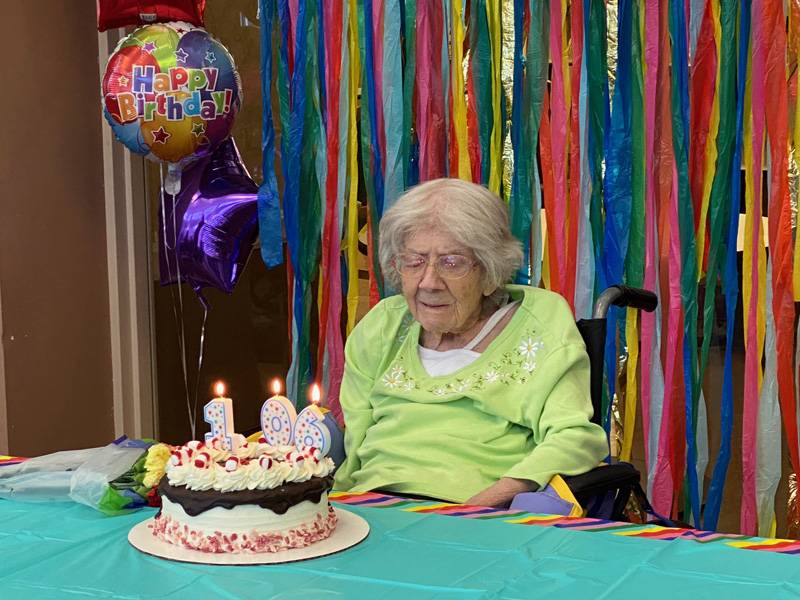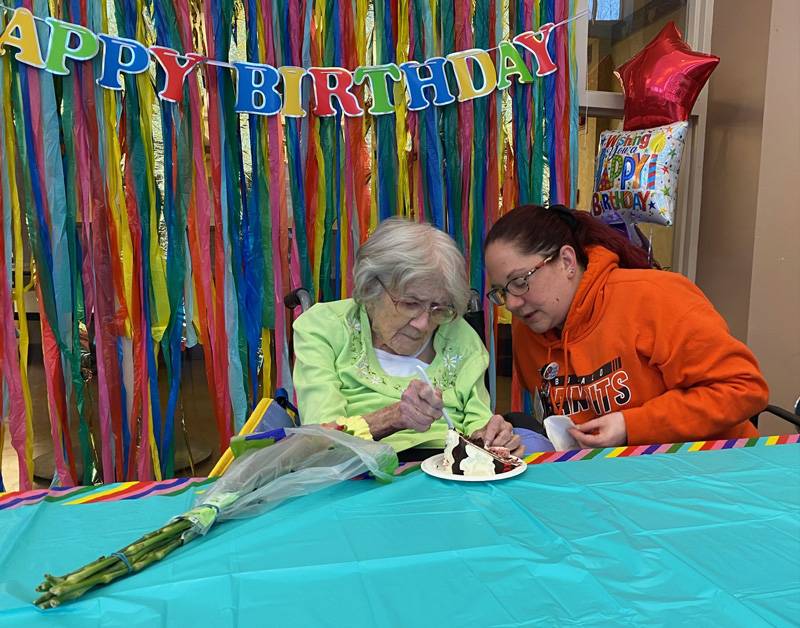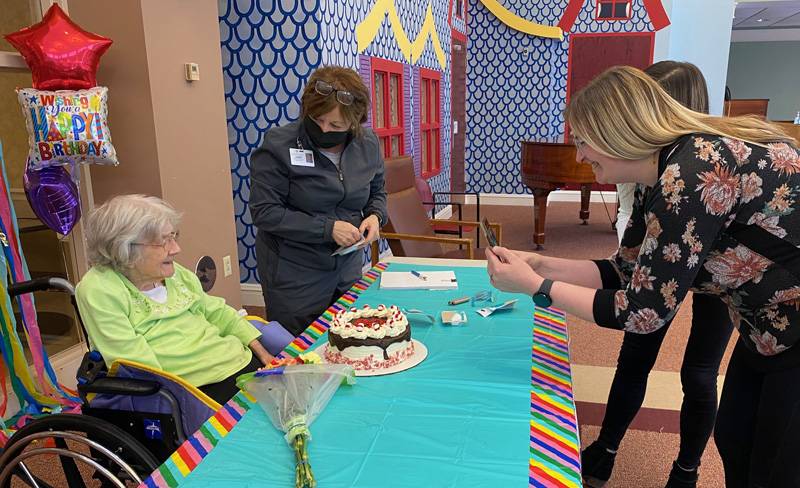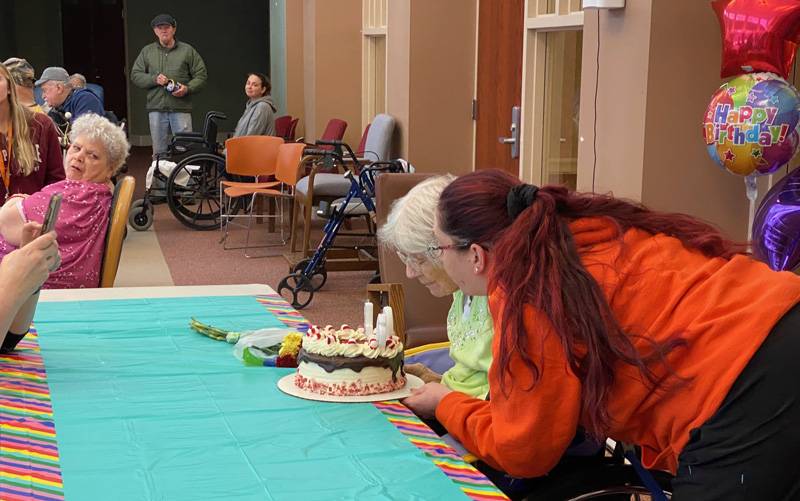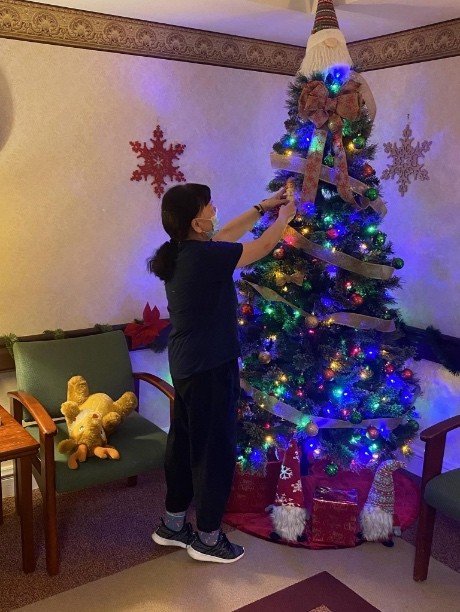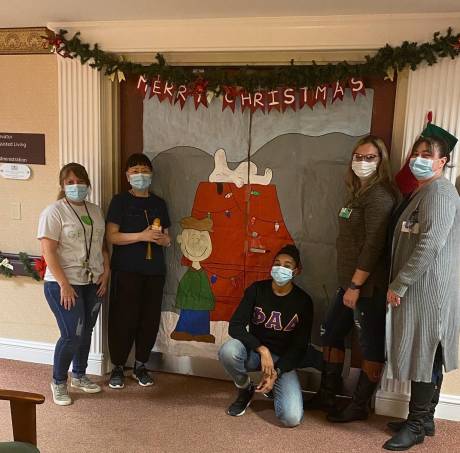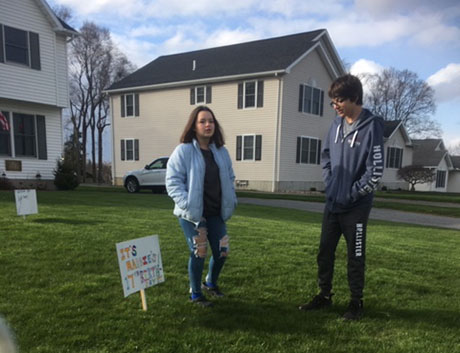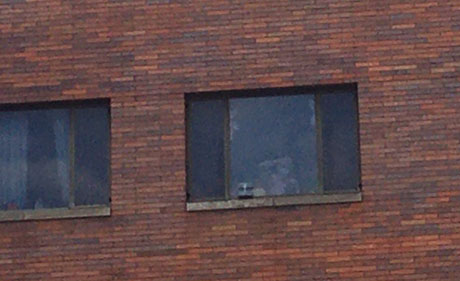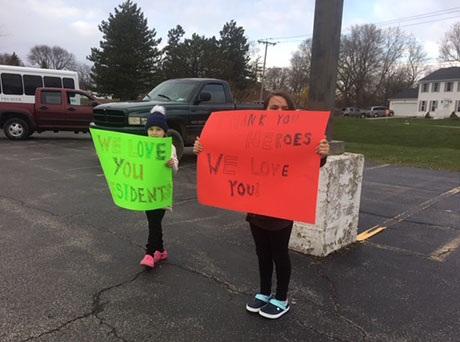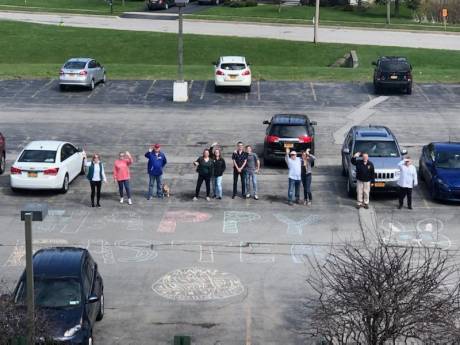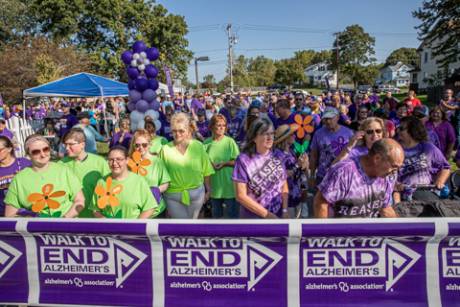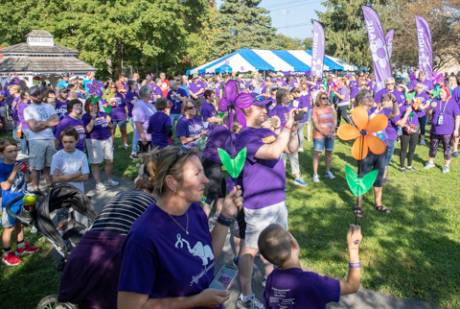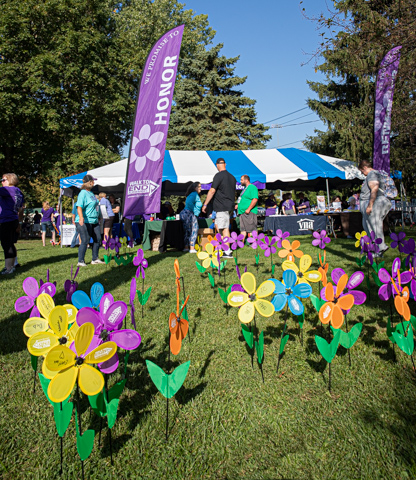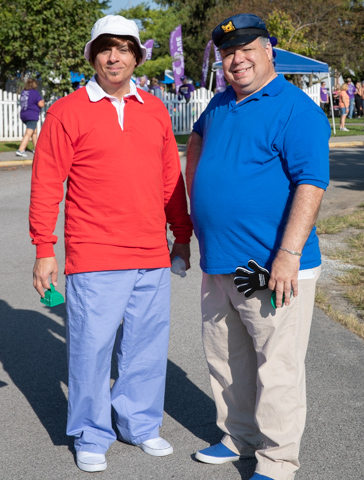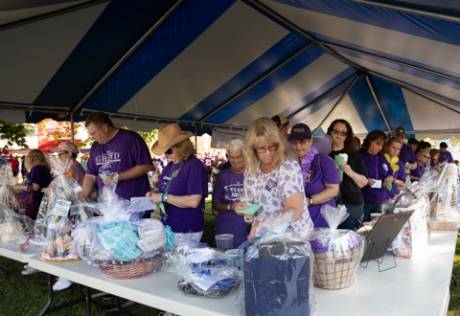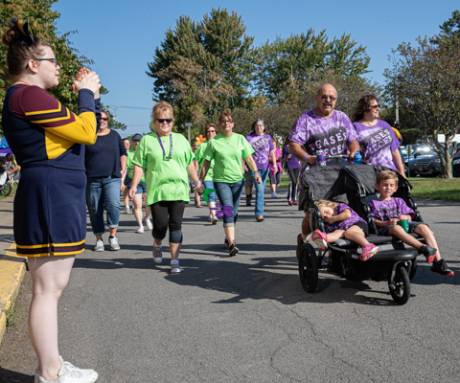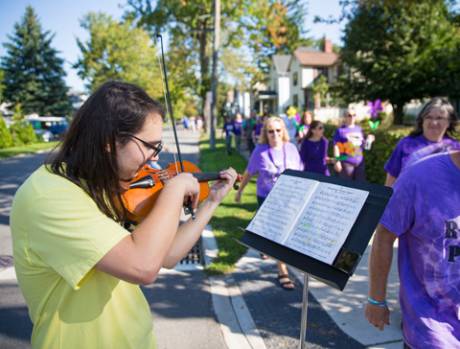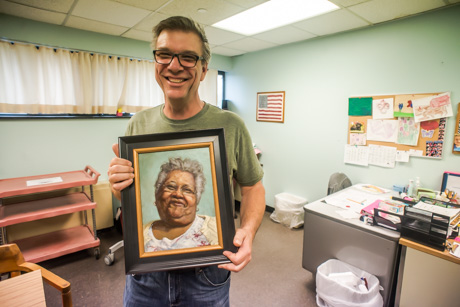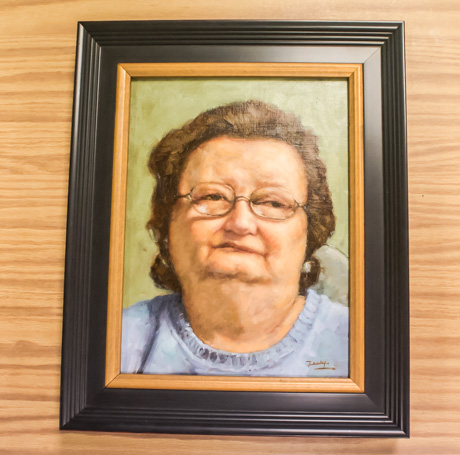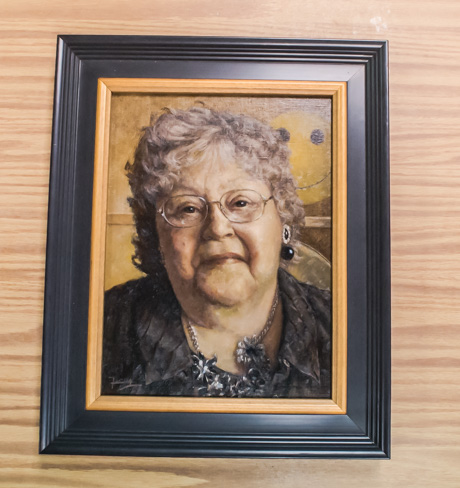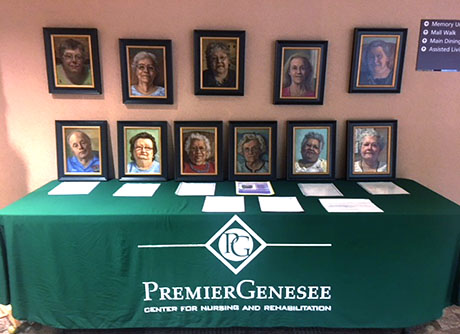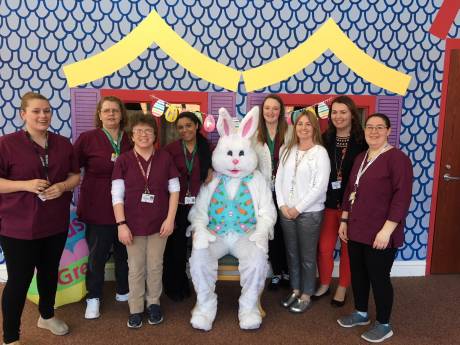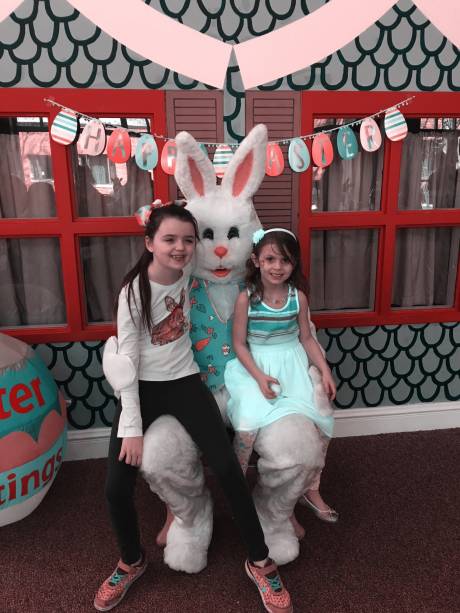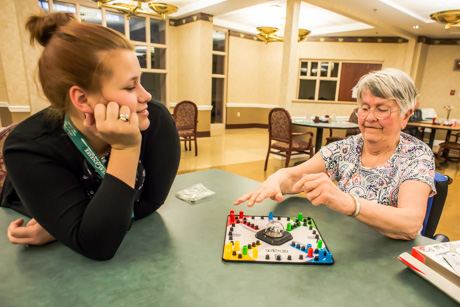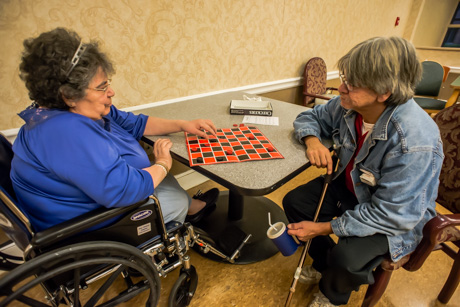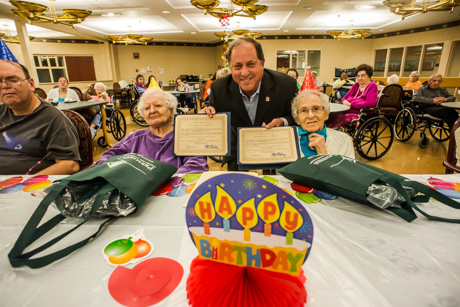It was a bigger project than he anticipated but artist Kevin Feary said he got a lot of enjoyment out of meeting a group of residents of the Premier Genesee Rehabilitation and Nursing Center in Batavia so he could paint their portraits.
"The original plan was 'I'm going to be able to do this in three or four months,' " Feary said. "Well, that was a joke because I couldn't."
He expected each portrait to take just a few hours. Some of them took 20 hours to complete and that didn't include the time spent getting to know his subjects.
"I came in to meet them, got to know them, even interviewed them, say a little bit, took some notes, because it is really good to know as much as you can about somebody to get their likeness," Feary said. "I think for me it's even more important to know something about you than to just look at you and try to paint your shapes. I know that I can get it to look like you, but I think that if I knew more about you I can get the essence of you."
When Feary isn't painting, and besides this project, he has carried on with his other art projects. He lives in Batavia and works in construction.
The idea for the project came to Feary while working on a committee at GO ART! to evaluate Ripple Grant applications. He said he found some of the ideas in the applications pretty mediocre and he thought he could do better and one day he told Heather Grant, staff at GO ART!, that maybe he should paint portraits of residents at the nursing home.
Then he kind of forgot about the idea until one day Heather Grant called him and asked if he wanted to apply for a Ripple Grant himself to paint those portraits. He hesitated.
"I thought, 'am I ready for this?' Is this something I can really actually go do?' "
Then he said yes and asked about the deadline.
"Tomorrow."
"I don't know how it goes with most artists but for me, I'm not the flamboyant Picasso, 'I am the greatest,' " he said. "I second guess myself all the time. So I didn't want to say yes I could do something that I didn't know if I could pull off. So I said, 'Well, OK, yeah, I'll apply.' "
When Feary started on the project, staff directed him to the memory unit.
"I came in a couple of times without even thinking about painting," Feary said. "(I came in) just to get to know some people. I remember coming in and Cindy -- I don't remember her last name -- was the aide there. This woman had a heart of gold. You could see a great patience in her. There is a lot to learn just from watching her and the residents. They all seemed pretty happy. I mean, they really seemed happy.
"I would go in one day and play crazy (eights) with them," he continued. "That was the big game that we played and then maybe have a snack. They would figure out who I was going to paint and then I would come in the next day and they would be a huge table playing crazy eights and I would be in the next room over and somebody was in a chair while I painted."
When he started meeting with residents of the nursing home, some at first were eager to get their portrait painted. Some changed their minds when it came right down to it. And some were wary of the whole idea altogether.
"It's amazing that some of them were, you know, afraid, or apprehensive at least, to have this done for whatever the reasons are," Feary said.
The project got interrupted when Feary had to take a break for medical reasons. When he got back, the first portrait he did wasn't of the person he was scheduled to paint because she changed her mind.
So, Feary just hung out for awhile and as he sat next to one of the residents, Cindy came up and asked her if she would like her portrait painted.
"She goes, 'how much is it going to cost?' " Feary recalled. Cindy told her it is free. "You don't have to pay anything," so the woman replys, "Can we start right now?"
Feary thought, "Great, I've already blown an hour."
After working on the portrait until it was nearly finished, it was time for him to leave, so he showed it to this woman.
Her disappointment was obvious.
"Well I'm just scornful," she said.
"I felt so bad," Feary said. "That's not why I'm here. I thought to myself, 'that's not what this is about. I can't let that happen again."
After that, Feary would only do a preliminary painting, just one color, while in the home, and then he would take a photo back to his studio and finish the portrait there.
Feary is an experienced, accomplished, award-winning artist, but that doesn't mean there still aren't things to learn and the nursing home project proved also to be a great learning experience. For those who view the portraits in the order he painted them, the progress in how he handled light is apparent.
That is one of the reasons Feary took on the project, to make and see that kind of progress.
Above, he's holding one of the final paintings, of Agnes, and nearly everybody picks it out as their favorite of the collection.
"The thing with her is I could see she was genuinely kind and she just had, you could just feel, the happiness about her," Feary said.
The idea for the project, as Feary said, popped into his head while judging Ripple Grants. That process could have sparked a lot of ideas, so when asked why portraits and the nursing home, Feary said, I don't know where it came from. I don't have a good answer for that."
He said he just thought it would be good for the residents of the nursing home.
"I know that a lot of these people don't get visitors," Feary said. "So I thought that I want to bring a little joy or happiness to these people. That was kind of the idea for the project. Then, also, for them to have a keepsake or the family to have a keepsake."
Photos by Howard Owens except for bottom photo, which was submitted by Premier Genesee.
